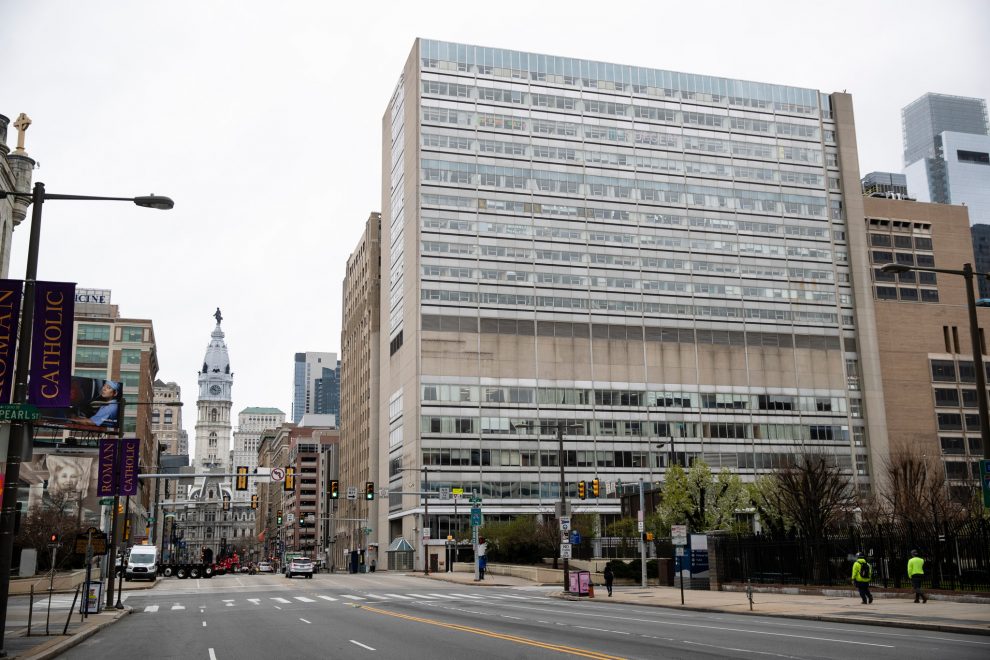Tens of thousands of health care workers across the United States are going without pay today, even as providers in the nation’s hot spots struggle to contain the coronavirus pandemic
This “tale of two hospitals” is a function of clumsy, if well-intentioned, federal and state directives to halt all non-emergency procedures, which appeared at first blush to be a reasonable precaution to limit unnecessary exposure and safeguard staff, beds and equipment.
But instead of merely preserving hospital beds and other resources, this heavy-handed injunction has created a burden of its own design: a historic number of empty beds in systems left untouched by the pandemic.
Those hospitals have resorted to unprecedented levels of furloughs to stave off temporary budget shortfalls, but industry and economic trends point to more lasting outcomes unless immediate action is taken.
At 18 percent of the U.S. economy, health care is a $3.6 trillion industry annually. By barring all elective surgeries, which covers a huge array of operations, like knee reconstructions or even cancer biopsies, hospitals have been denied billions in revenue in just the last month alone.
Outpatient services account for half of all hospital revenue, which means hospitals are now making, and spending, half what they were this time last year.
New York, California projected to lose 6 House seats to red states after 2030, census analysis shows
GOP split over whether Trump’s de-escalation efforts in Minnesota is a ‘retreat’
US deports 3 former Iranian Guard members amid rising tensions with Tehran
What Does It Say About Tim Walz That He Compared ICE to Nazis and Then Offered to Work with Them a Day Later?
‘I Lost Touch With Reality’: Kanye West Takes Out Full-Page WSJ Ad to Ask for ‘Forgiveness’
Trump says US will ‘no longer help’ Iraq if Nouri al Maliki returns to power
Well-known Texas attorney’s wife among victims of deadly private jet crash in Maine
Retired NYPD officer collapses, dies shoveling snow for churchgoers during devastating Northeast winter storm
Joe Biden Gets Hit with a Reality Check After Issuing a Statement on ICE Shooting
Trump hits the road to sell economic wins as Republicans brace for high-stakes midterm showdown
Trump admin marks International Holocaust Remembrance Day honoring millions murdered by Nazi regime
Video: To Assure Attacks on ICE Continue, CNN Airs Guest Suggesting ICE Will Begin ‘Putting People in Ovens’
Florida GOP Rep Vern Buchanan to retire, adding to wave of House exits
Minnesota fraud whistleblower says ‘lack of guardrails was pretty shocking’
Iran Suddenly Wants to Strike a Deal After ‘Big Armada’ Arrives: Trump
It’s not surprising, then, that the industry shed a record 43,000 health care workers in the first month of this crisis. Experts expect equal or greater layoffs this month, when the sustained forbearance has made revenue even more urgent.
Even before this crisis, one in four rural hospitals were vulnerable to closure. Now, many of these rural systems have more empty beds than ever before.
It doesn’t take an economist to understand the underlying economics here. And it won’t just be rural health care that will suffer—hospitals in every corner of the country might close for good.
The coronavirus will continue to spread throughout the United States, but our ability to treat and prevent its transmission will be severely constrained if as-yet-unaffected hospitals resort to mass layoffs. We need to sustain robust staffing in every corner of this country—and prohibiting elective surgeries outright is wildly counterproductive.
Understand: The availability of clinicians in hot spots like New York City, New Orleans and Detroit is no more an urgent public health crisis than health care staffing everywhere else because when this is over these patients will still require dialysis, chemotherapy and other life-saving treatments.
Health care has historically weathered economic downturns in stride because people get sick even in depressions, but this is unlike previous slumps. In the past 30 years, there have been only four months where the industry destroyed jobs. What used to be the worst case, in 2003, was just one-quarter of the losses experienced in March.
Hospitals are in the business of treating patients, but few are any more—which means more furloughs are ahead unless and until hospitals are allowed to perform their basic function: provide health care.
New York, California projected to lose 6 House seats to red states after 2030, census analysis shows
GOP split over whether Trump’s de-escalation efforts in Minnesota is a ‘retreat’
US deports 3 former Iranian Guard members amid rising tensions with Tehran
What Does It Say About Tim Walz That He Compared ICE to Nazis and Then Offered to Work with Them a Day Later?
‘I Lost Touch With Reality’: Kanye West Takes Out Full-Page WSJ Ad to Ask for ‘Forgiveness’
Trump says US will ‘no longer help’ Iraq if Nouri al Maliki returns to power
Well-known Texas attorney’s wife among victims of deadly private jet crash in Maine
Retired NYPD officer collapses, dies shoveling snow for churchgoers during devastating Northeast winter storm
Joe Biden Gets Hit with a Reality Check After Issuing a Statement on ICE Shooting
Trump hits the road to sell economic wins as Republicans brace for high-stakes midterm showdown
Trump admin marks International Holocaust Remembrance Day honoring millions murdered by Nazi regime
Video: To Assure Attacks on ICE Continue, CNN Airs Guest Suggesting ICE Will Begin ‘Putting People in Ovens’
Florida GOP Rep Vern Buchanan to retire, adding to wave of House exits
Minnesota fraud whistleblower says ‘lack of guardrails was pretty shocking’
Iran Suddenly Wants to Strike a Deal After ‘Big Armada’ Arrives: Trump
Because one in eight Americans is employed in health care, the fastest way to get Americans back to work is to allow hospitals to treat patients. Allowing these workers to get back on hospital payrolls will also save the federal government as much as $2 billion a day through safety net benefits.
When we’ve defeated the coronavirus, chronic disease will still be there, lurking in our communities. But health care’s footprint—large and small, rural and urban alike—will be forever changed by this crisis unless our government gets out the way and allows doctors to go about their business of healing patients.
After all, it’s doctors and patients who should make decisions about care, not bureaucrats.
Rick Jackson serves as chairman and chief executive officer of Jackson Healthcare, the third-largest health care staffing company in the United States. Jackson Healthcare staffs over 3,000 U.S. hospitals with clinicians and treats 10 million patients annually.
Story cited here.
























